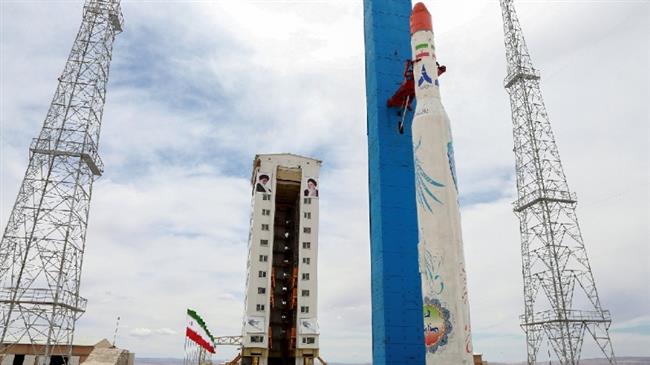Iran to launch observation satellite in coming days: ISA head
Head of the Iranian Space Agency (ISA) Morteza Barari says the country is preparing to launch its new domestically-developed scientific observation satellite in the “coming days”.

Barari told AFP on Saturday that the manufacture of the Zafar (Victory) satellite “began three years ago with the participation of 80 Iranian scientists”.
The 113-kilogram satellite will be launched by a Simorgh carrier 530 kilometers (329 miles) above the Earth, where it will make 15 orbits daily, said Berari.
The satellite was designed to remain operational for “more than 18 months”, he added.
Its “primary mission” will be collecting imagery, said Berari, who said Iran needed such data to study earthquakes, prevent natural disasters and develop its agriculture.
“It will be a new step for our country,” said Berari, noting that Iran had previously managed to place a satellite into orbit 250 kilometers (155 miles) above the Earth.
The Iranian official stressed the “peaceful” nature of the country’s space program, saying, “All our activities in the domain of outer space are transparent”.

FM Zarif says Iran to continue aerospace program despite US warningsZarif says Iran will continue with its aerospace program despite US warnings.
Barari said the ISA hopes to construct five more satellites before March 2021.
Earlier in January, Iran launched its Payam (Message) satellite into space with an aim to collect data on environmental change; however, technical problems that occurred during the final stage of the launch prevented the spacecraft from reaching orbit.
The launch of its carrier rocket was preceded by warnings from Washington, which claimed Iran’s space rocket launches would violate a 2015 UN Security Council resolution, because they use ballistic missile technology.
Resolution 2231 merely “calls on” Iran “to refrain from any activity related to ballistic missiles designed to be capable of delivering nuclear weapons.”
Iran maintains it has no intention of acquiring nuclear weapons, and says its aerospace activities are peaceful and do not violate the Security Council resolution.
Iran launched its first locally-built satellite, Omid (Hope), in 2009. The country also sent its first bio-capsule containing living creatures into space in February 2010, using Kavoshgar (Explorer)-3 carrier.
In February 2015, Iran placed its domestically-made Fajr (Dawn) satellite into orbit, which is capable of taking and transmitting high-quality photos to stations on Earth.







